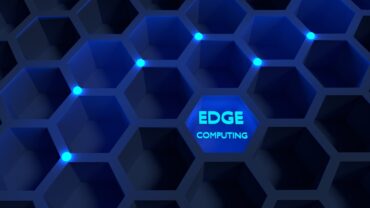
In this week’s real-time analytics news: AWS announced two Mistral AI models to soon be available on Amazon Bedrock.
Keeping pace with news and developments in the real-time analytics and AI market can be a daunting task. Fortunately, we have you covered with a summary of the items our staff comes across each week. And if you prefer it in your inbox, sign up here!
Amazon Web Services (AWS) announced that two high-performing Mistral AI models, Mistral 7B and Mixtral 8x7B, will be available soon on Amazon Bedrock. Mistral AI is the 7th foundation model on Amazon Bedrock, joining models from AI21 Labs, Anthropic, Cohere, Meta, Stability AI, and Amazon.
With these two Mistral AI models, users have the flexibility to choose the optimal, high-performing LLM for their specific use case to build and scale generative AI applications using Amazon Bedrock. The models and their capabilities include:
- Mistral 7B is the first foundation model from Mistral AI, supporting English text generation tasks with natural coding capabilities. It is optimized for low latency with a low memory requirement and high throughput for its size. This model supports various use cases, from text summarization and classification to text completion and code completion.
- Mixtral 8x7B is a high-quality sparse Mixture-of-Experts (MoE) model that is ideal for text summarization, question and answering, text classification, text completion, and code generation.
Salesforce announced the general availability of Tableau Pulse, making it easier for customers to make better, faster decisions with trusted generative AI and analytics. Tableau Pulse uses generative AI to surface insights in both a natural language and visual format, making it easier to discover important metrics, gain insights, ask questions, and tie data to a real-world business context. And, with AI capabilities running through the Einstein Trust Layer, a secure AI architecture natively built into the Salesforce Platform, Pulse allows teams to use generative AI without compromising their customer data. (Tableau Pulse is included for free with all Tableau Cloud editions and Embedded Analytics solutions.)
Real-time analytics news in brief
DataStax announced its out-of-the-box retrieval augmented generation (RAG) solution, RAGStack, is now generally available powered by LlamaIndex as an open source framework, in addition to LangChain. RAGStack with LlamaIndex offers a comprehensive solution tailored to address the challenges encountered by enterprise developers in implementing RAG solutions. Key benefits include a curated Python distribution available on PyPI, ensuring smooth integration with Astra DB, DataStax Enterprise (DSE), and Apache Cassandra, and a live RAGStack test matrix and proven GenAI app templates.
Arcitecta announced enhancements to its Mediaflux Livewire offering that address the challenges of transmitting data over low-bandwidth and unreliable network connections. The software solves the problems of large-scale data transmission over slow, undependable network connections. With the latest Mediaflux Livewire, customers can securely and reliably transfer massive file volumes, fostering collaboration and allowing users to focus on their data, not the management of the data.
Avaamo released Avaamo LLaMB, a new low-code framework for building generative AI applications in the enterprise safely, securely, and faster than anything else in the market. Avaamo LLaMB addresses the key challenges in enterprise adoption of Generative AI: eliminating hallucinations, integrating disparate enterprise content, automating cross-enterprise workflows, and accommodating any large language model (LLM) the enterprise chooses.
CitiusTech announced the launch of a solution for healthcare organizations to help address the reliability, quality, and trust requirements for Generative AI (Gen AI) solutions. The CitiusTech Gen AI Quality & Trust solution helps organizations design, develop, integrate, and monitor quality and facilitate trust in Generative AI applications, providing the confidence needed to adopt and scale Gen AI applications enterprise-wide. The solution offering is a software-based framework coupled with consulting, implementation, and support services.
Couchbase announced that it has partnered with Soracom to help customers adopt more IoT use cases across geographies. The partnership will streamline the setup and provisioning of subscriber identity module (SIM)-based edge devices connecting to Couchbase’s cloud database platform. Soracom allows customers to use cellular networks for IoT applications where network availability is an important factor, and where traditional wireless communications, such as Wi-Fi or Bluetooth, are insufficient.
Exasol announced Espresso AI with the launch of three new artificial intelligence (AI) capabilities designed to help enterprises approach data analytics in a faster, more cost-efficient, and flexible manner. With these new features, Espresso AI provides organizations with the tools needed to harness the power of their data for advanced AI-driven insights and decision-making. By leveraging Espresso AI, data teams are equipped to address business-critical needs such as demand forecasting, fraud detection, and churn prediction.
Gathr Data announced the launch of Gen AI fabric – an integrated platform approach to building Gen AI solutions over a unified visual canvas. The new Gen AI capabilities enable enterprises to streamline operations, workforce training, and customer interactions. Gathr offers data engineering, machine learning, action analytics, and process automation capabilities. With Gen AI fabric, enterprises can now leverage Gathr’s data engineering and Gen AI capabilities to process large data volumes efficiently and create AI applications over a single pane.
Google introduced Gemma, a new generation of open models to assist developers and researchers in building AI responsibly. Gemma is a family of lightweight, state-of-the-art open models built from the same research and technology used to create the Gemini models. Accompanying the model weights, Google is also releasing tools to support developer innovation, foster collaboration, and guide the responsible use of Gemma models.
Hammerspace unveiled a high-performance NAS architecture to address the requirements of broad-based enterprise AI, machine learning, and deep learning (AI/ML/DL) initiatives and the widespread rise of GPU computing both on-premises and in the cloud. This new category of storage architecture – Hyperscale NAS – is built on the tenants required for large language model (LLM) training and provides the speed to efficiently power GPU clusters of any size for GenAI, rendering, and high-performance computing.
Ikigai Labs announced that its AI platform is now available on the SAP Store, the online marketplace for SAP and partner offerings. Ikigai is built on top of its three proprietary foundation blocks developed from years of MIT research – aiMatch for data reconciliation, aiCast for prediction, and aiPlan for scenario planning and optimization. The Ikigai platform integrates with SAP to deliver AI-enabled data reconciliation, time series forecasting, and scenario planning across a broad range of industry and horizontal use cases.
Lightning AI announced it has signed a Strategic Collaboration Agreement (SCA) with Amazon Web Services, Inc. (AWS). By collaborating with AWS, Lightning AI is able to offer a powerful, enterprise-grade, cloud-based platform for building and deploying AI products. To that end, the SCA allows Lightning AI to leverage AWS compute services to power generative AI services and to provide support for Amazon Elastic Compute Cloud (Amazon EC2) Trn1 instances, powered by AWS Trainium accelerators, directly within the platform.
ManageEngine, a division of Zoho Corporation, announced the release of an ML-powered exploit triad analytics feature in its SIEM solution, Log360. Now, enterprises can knowledgeably trace the path of adversaries and mitigate breaches by providing complete contextual visibility into the exploit triad: users, entities, and processes.
Nasuni announced Nasuni IQ: data intelligence capabilities to help enterprises manage, assess, and prepare their unstructured data environment for AI. With Nasuni IQ, businesses can quickly monitor usage patterns, make proactive data management decisions, and better enable the delivery of intelligent insights. The Nasuni File Data Platform supports the next generation of data initiatives by consolidating unstructured data within a single global namespace.
Reltio introduced its latest product release featuring Reltio’s LLM-powered, pre-trained machine learning feature for entity resolution and a new AI capability designed to simplify matching and make digital content searches easier. Key enhancements in the Reltio Connected Data Platform 2024.1 include Reltio’s Flexible Entity Resolution Networks (FERN) for rule-free matching, Reltio Intelligent Assistant (RIA), product data domain for Reltio for Life Sciences velocity pack, and more.
Sonatype announced artificial intelligence and machine learning (AI/ML) component detection, available as part of Sonatype Lifecycle. This technology enables companies to accelerate software development while effectively managing the risks associated with AI. Key functions of AI/ML component detection include AI/ML usage monitoring and component categorization, AI usage management, and internal detection of AI models.
Tabnine announced new product capabilities that enable organizations to get more accurate and personalized recommendations based on their specific code and engineering patterns. Engineering teams can now increase Tabnine’s contextual awareness and quality of output by exposing it to their organization’s environment — both their local development environments and their entire code base — to receive code completions, code explanations, and documentation that are tailored to them.
If your company has real-time analytics news, send your announcements to [email protected].
In case you missed it, here are our most recent previous weekly real-time analytics news roundups:
- Real-time Analytics News for the Week Ending February 17
- Real-time Analytics News for the Week Ending February 10
- Real-time Analytics News for the Week Ending February 3
- Real-time Analytics News for the Week Ending January 27
- Real-time Analytics News for the Week Ending January 20
- Real-time Analytics News for the Week Ending January 13






























